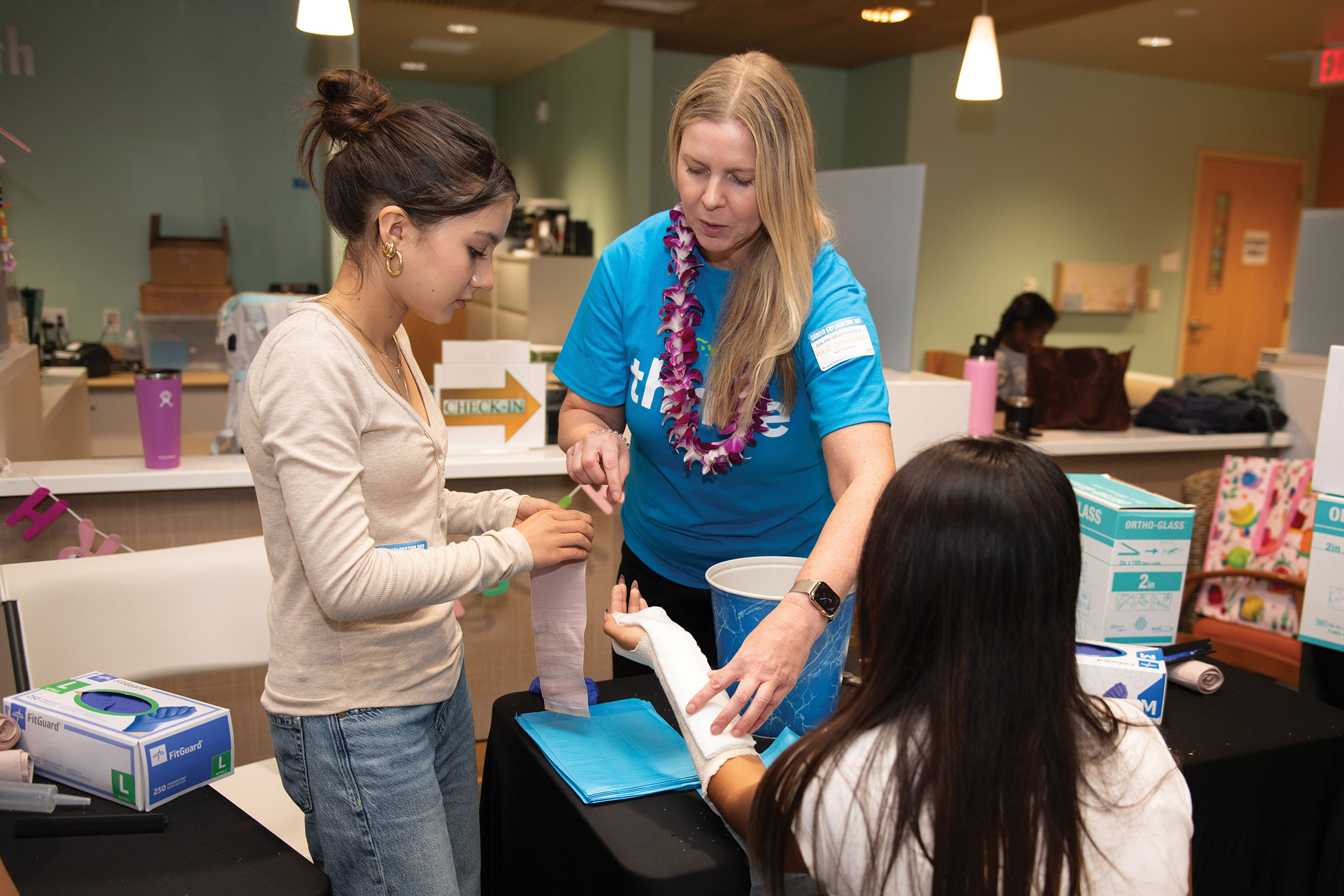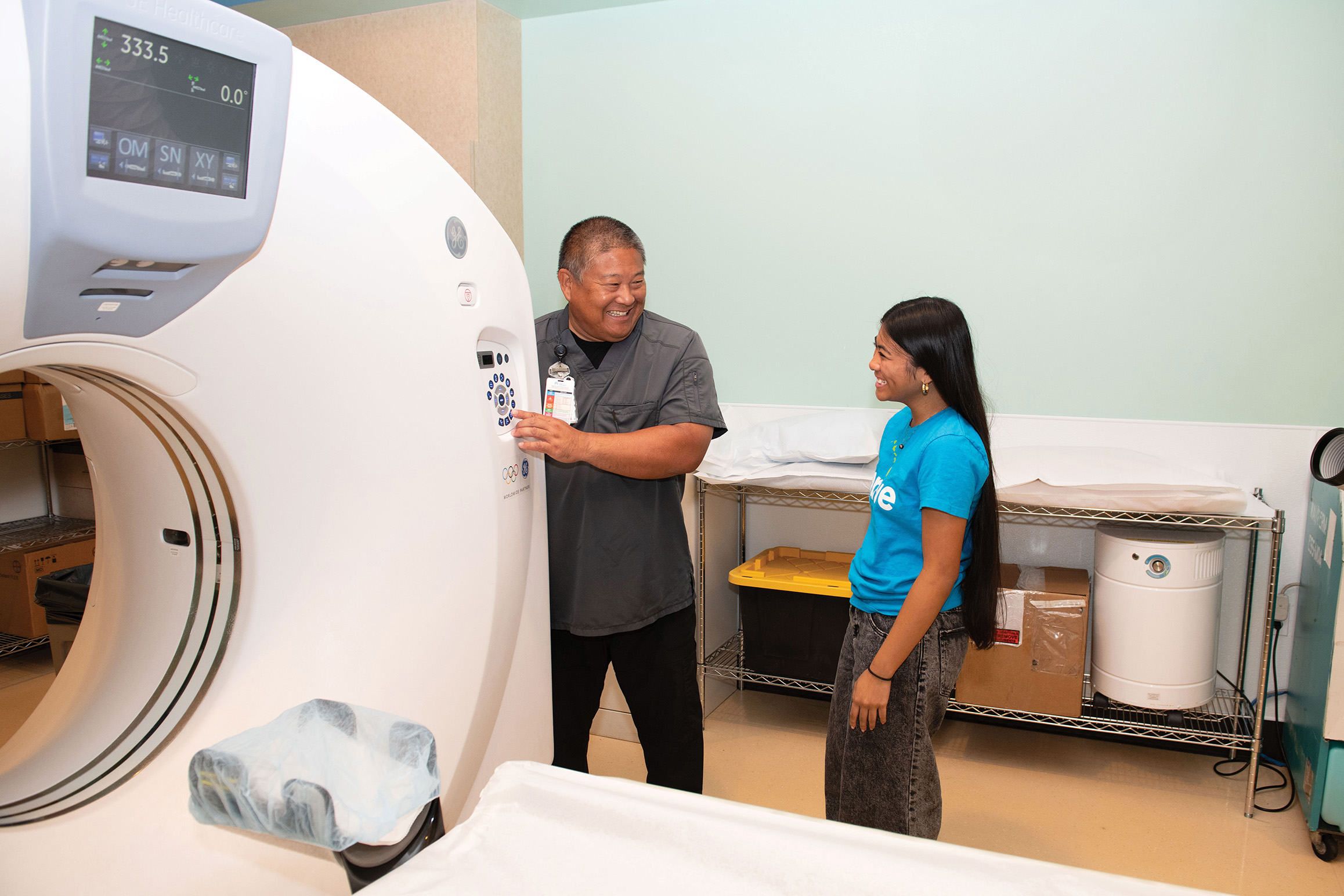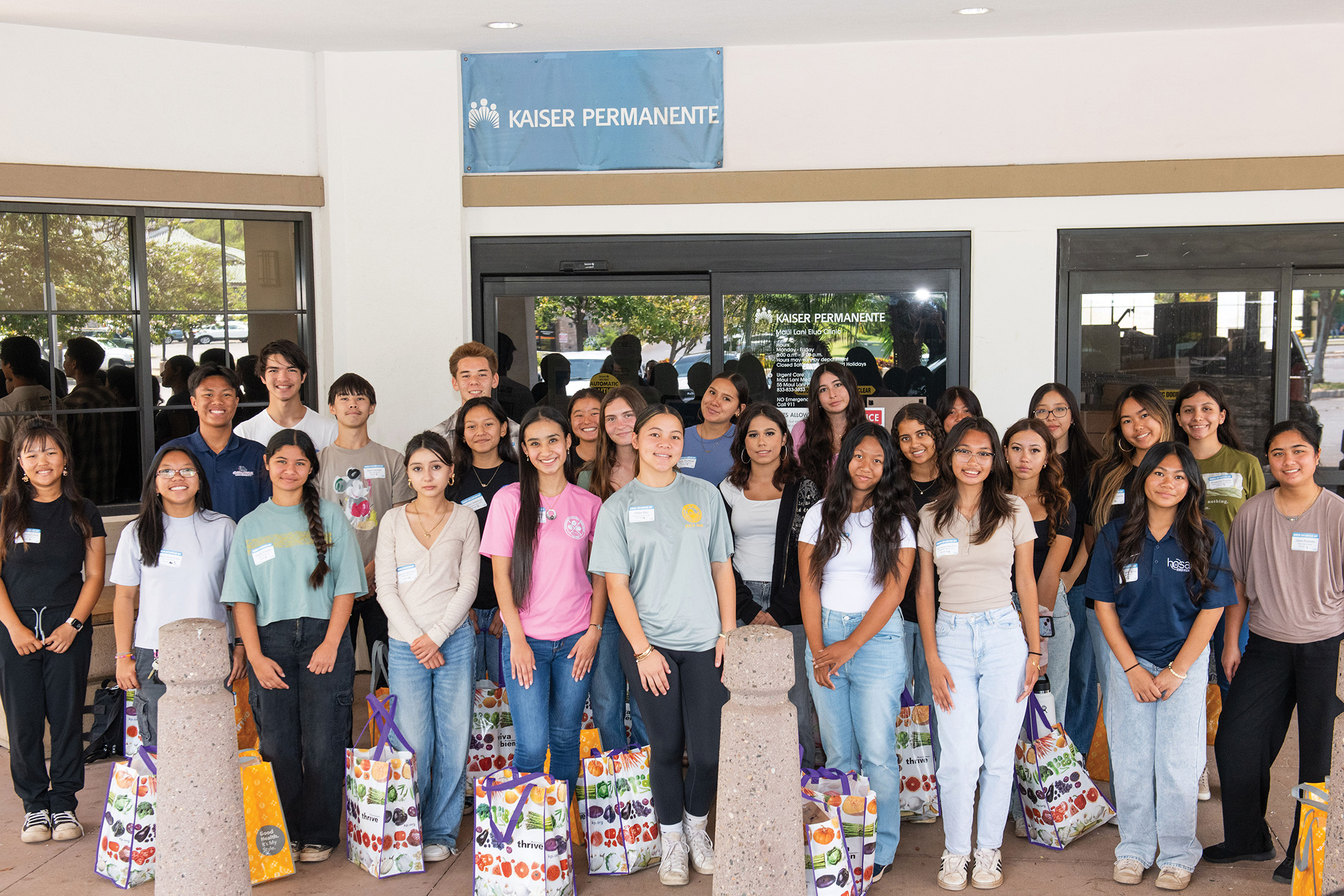Closing the Health Care Workforce Gap
Kaiser Permanente is taking an active role in strengthening the local workforce pipeline as the need for medical professionals continues to grow.

Hawaii’s health care system is short thousands of workers, and while progress has been made to fill shortages, more work is required. According to the Healthcare Association of Hawai‘i’s 2024 Workforce Survey, the health care system is short 4,669 non-physician workers and more than 700 physicians —a gap that threatens to widen as the demand for care increases.
“The demand remains high and is going to continue to increase because of the aging population,” says Janna Hoshide, vice president of workforce development for the Healthcare Association of Hawai‘i. “So it’s really critical that we continue to invest and grow our own here, especially because Hawai‘i is so geographically isolated.”
To meet the growing need, Kaiser Permanente is taking an active role in strengthening the health care workforce pipeline through community partnerships that offer students mentorships and early exposure to the industry. These initiatives target high school and college students to build awareness and spark interest in health care, especially in roles where the need is most urgent.
“By far the biggest need are entry-level positions,” Hoshide says, noting roles such as certified nurses, medical assistants, patient service representatives, and phlebotomists. “So overall, we have a lot of efforts trying to impact the entry-level positions.”
Innovative learning labs
One early exposure initiative led by the Healthcare Association of Hawai‘i is transforming high school classrooms into learning labs, starting with Wai‘anae High School, with plans to eventually expand statewide. With support from Kaiser Permanente and other funders, the Wai‘anae High School Health Services Lab broke ground in July; it’s set to open in February.
The renovated building will have classroom space and state-of-the-art lab areas, including an exam room, a hospital bay, long-term care bays, and a phlebotomy station. Once open, it will immediately benefit 153 students who have chosen the health services pathway.
“We really appreciate the partnership with Kaiser Permanente and I think it’s been great that they’ve been innovative and trying out new programs and models with us,” says Hoshide. “That’s been really helpful. And that’s what it takes, all of us experimenting and having that innovative spirit in order for us to support the students and really strengthen the health care workforce.

Hands-on internships
In addition to its community partnerships, Kaiser Permanente also runs its own initiatives focused on the health care pipeline. The Summer Youth Employment Program, now in its second year, marks a focused effort to engage younger talent. The paid summer internships offer Oahu and Maui high school and college students meaningful, hands-on experiences in health care settings.
Far more than just summer jobs, the internships are thoughtfully designed to expose students to roles in health care and support their long-term growth. “We want to make sure that it’s an experience for them that they will forever remember,” says Kaiser Permanente operations manager Jackie Fernando.
She emphasizes the importance of intentional placements, as interns are thoughtfully matched with departments of interest, and if the fits aren’t right, they can explore different areas the following year.
The approach helps the interns figure out their future paths, so they may feel confident in the health care careers that they choose to pursue. “I feel like the impact that it’s making is going to change the future of health care,” Fernando says.
In the field of radiology, another Kaiser Permanente summer program is offering similar opportunities to high school and college students, in partnership with the University of Hawai‘i Maui College.
The Diagnostic Imaging Summer Experience is an eight-week program that exposes students to different health care fields within radiology departments.
“What we’re trying to do is to get local students or kids to go into the health care field,” says Dr. Lee Miyasato, a radiologist for Kaiser Permanente. “And you know, you can’t be what you can’t see.”
Students receive hands-on experience working with CT scans, ultrasound, MRI, and X-rays.
“The students have a rotation of different experiences, particular to diagnostic imaging, but they also are exposed to what happens, such as the consult, communicating with the different physicians, and really being able to increase their professional skills, and seeing how it actually happens in the workforce,” says Juli Patao, associate professor of Cooperative Education at UH Maui College.
While students rotate between the Kaiser Permanente Maui Lani and Wailuku Medical Offices, they also report to UH Maui College to talk about their college futures and how to prepare for the workforce, with such topics as employer benefits, financial education, and how to budget college loan debt.
“The goal was not only to lead them into a diagnostic type imaging summer experience, but any student who wanted to major in the medical field would be exposed to different careers,” says Patao, who notes that some students aren’t aware of medical careers outside of being a doctor or nurse. “It really gave them that huge exposure of something to look forward to in their future.”
Career exploration day
To further spark interest among young people in health care careers, the Maui Economic Development Board held its first Career Exploration Day in April at the Maui Lani Medical Office, in partnership with Kaiser Permanente.
“We have the greatest shortages in Maui County,” says Leslie Wilkins, president and CEO of the Maui Economic Development Board. “That’s why we launched our health sector partnership, to hear directly from our medical providers on how can we continue to support growing the health sector economy with all kinds of needs,” she continues. “But of course, the No. 1 need that comes up is the workforce pipeline.”

The Career Exploration Day gathered students from Maui County high schools to take part in activities such as creating casts and splints, exploring echocardiograms and MRIs, learning about labor and delivery, and practicing suturing techniques.
“We had five breakout sessions that were looking at critical need and the gaps we have in medical care here,” says Wilkins. “And so the students actually physically did activities under the direction and alongside the doctors practicing in these fields.” Those breakout sessions focused on obstetrics, cardiology, orthopedics, radiology, and general surgery.
Wilkins says she’s gotten great feedback from students who say the Career Exploration Day piqued their interest in medical school, and from their parents as well. More events are scheduled for the winter and spring.
“With the volatile and ever-changing state of public funding, the private sector investment from Kaiser Permanente has a really important impact in sustaining our efforts in education and career pathways,” Wilkins says.
The event, like other programs supported by Kaiser Permanente, provides the hands-on experience and mentorship that will inspire the next generation of health care professionals across Hawai‘i, with the hope of helping to close the health care workforce shortage gap.